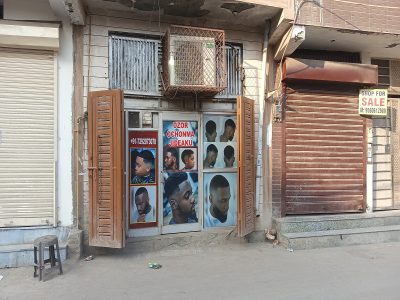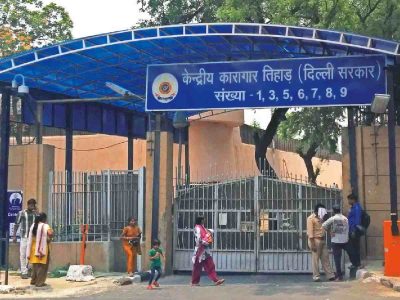Last week, Infosys announced that it will allow employees to moonlight with the prior consent of managers, provided such an engagement does not compete with the company, its clients or pose a conflict of interest. The decision came after tech giants in India fired hundreds of employees over the last 6-12 months for having side hustles, calling the practice “unacceptable” and “unethical”.
No two-timing, no moonlighting – tech giants like Wipro and Happiest Minds have reiterated.
The issue of moonlighting or dual employment has emerged as a big talking point in the IT industry ever since Wipro Chairman Rishad Premji red-flagged the issue on Twitter. Over the past weeks, several companies have waded into the issue, making it clear that they do not approve of side hustles.
Also read: Hapless workers, indifferent JNU administration
On the other hand, for employees, the situation has served them a double whammy as they complain of stagnant salaries with little to no hike, negligible incentives, as well as, “facing the wrath of their companies for merely seeking to survive.”
Anguished employees
For 27-year-old Vineet, a resident of Dilshad Garden in Delhi, his total household expenditure includes a long list of medicines for his ailing mother. He works as a software engineer during the day for a salary of Rs 35,000 and is a freelance writer in his personal time.
“I lost my father when I was 22 years old in my final year of college, and began working soon after graduation. During hiring, HRs ask you how many dependent people you have, and that often goes against you. Once we are recruited, our salaries hardly meet our daily needs, leave aside the extra costs such as medical treatment of kin,” he says.
After two years of walking a tightrope, he took up a writing job in 2019 to bear the medical costs of his mother. “I thought of utilising my passion for writing to find a way out. This was after I communicated my needs to my HR in the hope of cooperation from the office’s end, but to no avail. So, I took up this content writing job until I found a better-paying job, and then the pandemic hit, making the situation much worse,” he rues.
Dubbing the corporate medical insurance facilities “unhelpful”, Vineet says, “Companies promise you policies that are largely of no use when you need them the most. For example, back in 2019, my mother had to undergo hernia surgery, and I sought to avail the medical insurance for which I pay a premium. But the catch is the reimbursement part, which takes three to four months. Meanwhile, where do you get the money from?”
Like many others, he says his salary isn’t enough to allow savings. “You must first pay the amount from your own pocket. Reimbursement comes later. Then, you have to borrow from your friends and family, but that is also a privilege,” he says.
Bereft of a solution, he asks, “Medical insurances don’t cover daily medicines, which actually cost a bomb. So, if companies neither pay us well nor allow us take side jobs, how do they expect us to survive? At least my side gig earns me another 10,000-12,000 bucks. Despite the constant anxiety of losing my primary job, I keep working two jobs because that is what I can do to technically keep my family alive.”
About moonlighting, Executive Coach Dr Ramesh Kumar says, “Organisations need to understand that they have much to answer on their side for allowing the situation to reach this stage where their own employees resort to moonlighting. Warnings, threatening, terminating employees won’t fix the issue. The fault is in your own backyard.”
Not a happy choice
While dual employment brings more income into the family, it also comes at the cost of work-life balance. “In today’s age, working one job completely exhausts individuals, so two jobs will obviously have adverse effects on your life because you have no time to rest or have a social life,” says 31-year-old Pratima, an IT employee.
“I moved to Delhi back in 2018 from Indore. Every year house rent is increasing and today Rs 500 has no value. You step out and it disappears. But our salaries don’t increase at that pace. Plus, companies fire employees without a thought and don’t get their replacement for months, leading to inhuman work pressure,” she says.
Currently, Pratima works 14-15 hours because she “has to slog” to survive. “A lot of times our side hustles don’t even come in the way of our primary job because it is usually in a different field, but it still remains a problem for our employers. Since the news broke of tech giants firing people over dual employment, the situation has only become worse because every now and then, our HRs share threatening emails. Why would we want to work so much, if we were not compelled to?” she asks.
“I hardly spend any time with the family I live with. They see me wake up and leave the house for work and then come back and sit with my laptop again,” she adds.
Pratima lives with a family of five in a 3BHK in Munirka. She is the second earning member, along with her father who is a teacher in a private school. Together, they bring home Rs 68,000.
“Half of the money goes into house rent and utilities. It’s really cruel to impose such rules on employees when they are already in desperate situations. We keep receiving greetings about the company’s profits, but our salaries don’t increase accordingly. It’s disenchanting,” she says.
Addressing corporates, Dr Kumar says, “If moonlighting is a problem, then there are solutions: revisit and restructure pay scales and pay structure. Pay fair for hard work. There is a genuine lopsided anomaly in how pay is structured across the hierarchy. Entry-level, junior levels up to mid/senior managers are paid way too little. Unless this is addressed the need to earn more money will always be there. Wealth creation seems to be an acceptable word for the higher-ups but why frown upon basic needs expectations from junior staff?”
Regarding confidentiality, he says, “What can be such confidential information a junior-level employee has which can be shared while moonlighting for a competitor? Senior executives attend seminars, conferences, and so on where they share company policies, technologies, USPs, strategies in open forums to market themselves and their organisations. Is this not confidentiality breach? Seems the confidentiality clause is just to make the issue of moonlighting look more strategic?”
Pandemic excuse
Since the coronavirus pandemic took a toll on the job sector, the salary structure and growth of employees has largely been disproportionate, says Sudhir, a 42-year-old PR agent.
“Today, our HR has only one response to our queries regarding increment – ‘You know, the pandemic…’ But that didn’t stop the price rise – rather, expenditure is skyrocketing. With house rent, utilities, gas price and education expenses, living in Delhi has become tough. If I don’t work two jobs then my family will barely survive, leave aside with dignity,” he says.
“My daughter is in the third standard and education is so expensive these days. Plus, for every event we are required to spend Rs 2,000. Then, the annual sum of around 70,000 in school. I am forced to keep such side hustles because that is keeping me afloat. Who would want to not work so many hours if our salaries had met our needs? No one.
He gets down to doing his other work late at night so that he can spend some time with his family before his daughter goes to sleep. “Then, I work till 3 am so that I earn that extra money for a decent life,” Sudhir says, adding that he requests his industry friends to give him work “to survive”.
Many of Sudhir’s colleagues have been sacked due to dual employment, which led to a few weeks of lull. “But after that, I eventually go back to seeking work because we have to pay bills and bring food to the table. In fact, talking about food, our standard of living has largely gone down. We hardly eat meat because it costs more money. All the money goes into basic needs!”
(All names of respondents have been changed as they spoke on condition of anonymity)
Follow us on:
Instagram: instagram.com/thepatriot_in/
Twitter: twitter.com/Patriot_Delhi
Facebook: facebook.com/Thepatriotnewsindia





